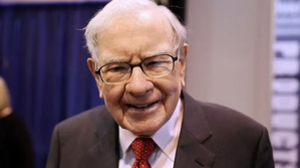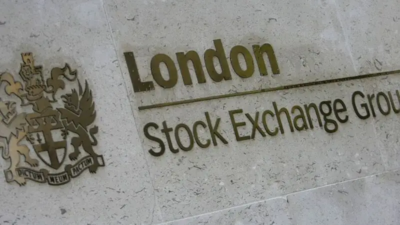Could the Federal Reserve rule out rate cuts in 2024?
A version of this story first appeared in CNN Business’ Before the Bell newsletter. Not a subscriber? You can sign up right here. You can listen to an audio version of the newsletter by clicking the same link.
Investors seemed convinced just months ago that the Federal Reserve would begin slashing interest rates aggressively during the first quarter of the year. Now, some are wondering if the central bank might not cut rates at all in 2024.
Sticky consumer and wholesale inflation, shown in fresh data released last week, stoked fears that the Fed will keep rates higher for longer than previously expected.
Stocks pulled back from record highs as Wall Street recalibrated its expectations to four or five rate cuts in 2024, more in line with the Fed’s own projections than the six cuts for the year traders expected in early January.
But the hot inflation data has also brought into question whether the Fed could hold rates at their current 23-year high for the rest of the year or even hike further to bring inflation to its 2% target.
Of course, one month of data doesn’t establish a trend, and officials have noted that they like to see several months of data before making key policy decisions. Some investors say that it is premature to expect that the Fed won’t pare rates this year, especially considering it penciled in three cuts at its December policy meeting and inflation is still trending lower on an annual basis.
“I don’t think they’re going to panic just because there’s a little bit of a rebound. I think they’re going to keep rates steady,” said Tom Graff, head of Investments at Facet. He expects the central bank to cut rates two to four times this year.
The Federal Reserve in January held rates steady for the fourth straight meeting. Chair Jerome Powell said that while inflation has come down considerably, the central bank wants to see more signs of disinflation before beginning to ease rates.
Officials worried at that policy meeting that inflation could stay sticky. But they also appeared to take the view that their best bet is to hold rates steady for now, according to minutes released Wednesday. Plus, there’s no official indication that the central bank won’t cut rates this year.
To be sure, that doesn’t mean that holding rates pat this year isn’t a possibility. Deutsche Bank economists outlined three economic scenarios that could lead to such a situation:
• If the core Personal Consumption Expenditures price index, which strips out the more volatile food and energy categories from the Fed’s favorite inflation gauge, looks set to end the year at 2.7% or higher. The measure rose 2.9% annually in December, a slowdown from the previous month’s 3.2% rate.
• If the neutral interest rate, or the rate that maintains full employment and stable inflation, is revised upward closer to 3.5%. The neutral rate should be 2.5%, based on Fed officials’ estimates for the central bank’s key interest rate, inflation and unemployment.
• If economic growth data is strong and unemployment remains at a rate of 4% or lower. The unemployment rate was 3.7% in January.
“There are compelling reasons to begin the process of dialing back the degree of monetary restraint by mid-year,” Deutsche Bank economists wrote in a February 14 note. “However, if this progress is not realized, and the economy continues on a robust course … that could lead to no rate cuts this year.”
Apple launches its first sports app
Apple is taking an even bigger swing at sports, reports my colleague Oliver Darcy.
The company on Wednesday launched Apple Sports, a free app for the iPhone that delivers real-time scores, key statistics and live betting odds.
At launch, users will have access to live data from the NBA, NHL and MLS, among other leagues. The app, Apple’s first in the sports arena, is being released ahead of March Madness, offering real-time data for both men’s and women’s NCAA basketball. Other leagues will be added over time, including the NFL and MLB.
“We created Apple Sports to give sports fans what they want — an app that delivers incredibly fast access to scores and stats,” said Eddy Cue, Apple’s senior vice president of services, who oversees the app and was personally involved in its creation.
The app, which will not include advertising at its launch, represents Apple’s latest dive into the world of sports, a multibillion-dollar business that technology companies have made recent entries into, challenging the legacy media companies that have traditionally held the lucrative broadcast rights.
It also threatens to upend the mobile sports app space that has long been dominated by advertising-supported apps from ESPN and others.
Read more here.
2023 was the year of the strike. Here’s what’s possibly ahead
The number of major strikes jumped 43% to 33 in 2023, according to the official Labor Department count released Wednesday, the biggest number of large work stoppages in America in more than 20 years.
There were 462,000 workers who were on strike at some point in 2023, according to the Bureau of Labor Statistics report, and there were 16.7 million days of work lost when the number of strikers and the length of the strikes are taken into account. That’s up from only 127,000 strikers who were off the job for a total of 2.2 million days in 2022.
The greatest number of lost days of work was because of the strike by SAG-AFTRA, which represents 160,000 actors and was on strike for about four months, reports my colleague Chris Isidore.
The last time there were this many strikes, or that many days of work lost, was 2000, when 39 major strikes occurred, keeping workers off the job for a combined 20.4 million days. The 33 strikes last year is roughly double the average of 16.7 major strikes a year over the course of the last 20 years.
The official Labor Department count of strikes is incomplete though, since it only tracks work stoppages involving 1,000 or more workers. And that is a relatively small percentage of strikes that take place on a regular basis.
Read more here.
Maybe You Like
London Stock Exchange urged to do more to hold onto retail traders
The UK stock market needs to improve investor communication and engagement in order to retain its individual traders, according to a report from online trade and investor provider CMC Markets. ADVERTISEMENTUK retail investors are increasingly...
Hargreaves Lansdown rejects private equity takeover bid
The UK investment platform says the offer from a group including the Abu Dhabi Investment Authority undervalues the firm. ADVERTISEMENTHargreaves Lansdown has rebuffed a takeover proposal worth £4.67 billion (€5.48 billion) made...
Ferrovial set to offload UK regional airports amid Heathrow deal uncertainty
Ferrovial is planning to sell its stake in three UK regional airports amid difficulties in finalising its £2.4bn sale of a 25% stake in Heathrow. ADVERTISEMENTSpanish infrastructure company Ferrovial is reportedly putting up for sale...



























